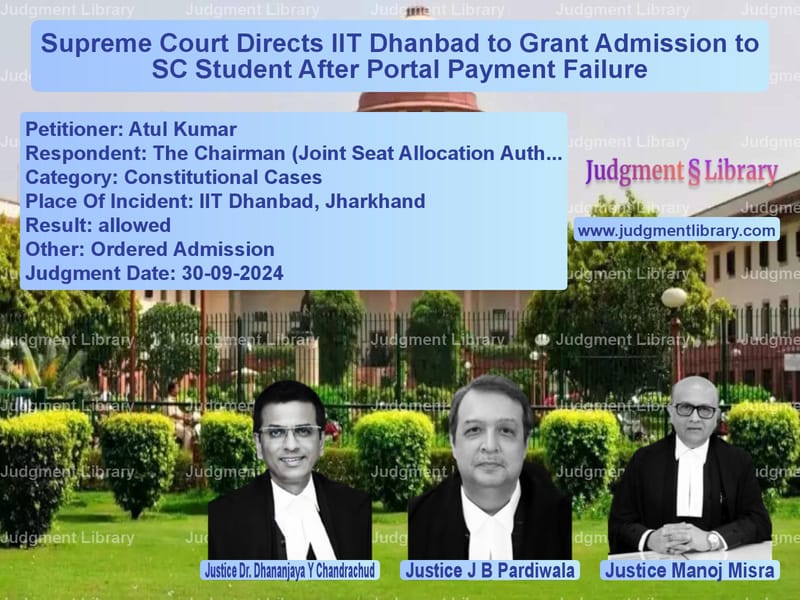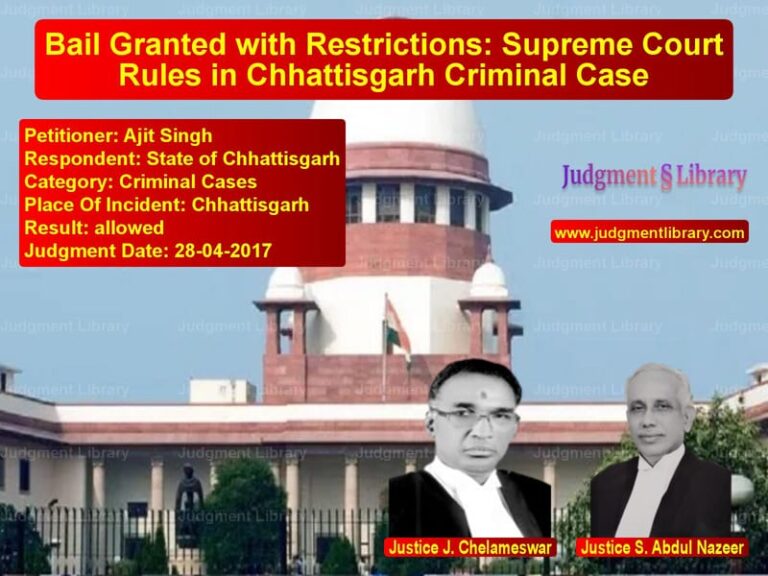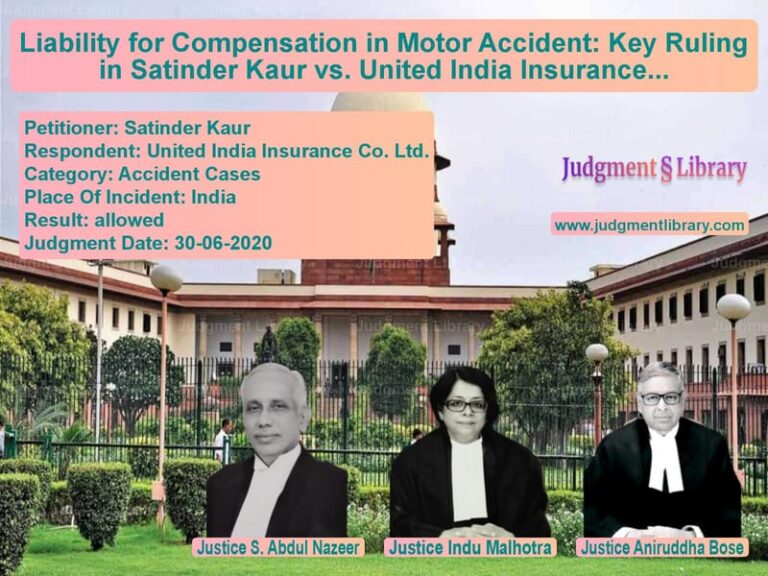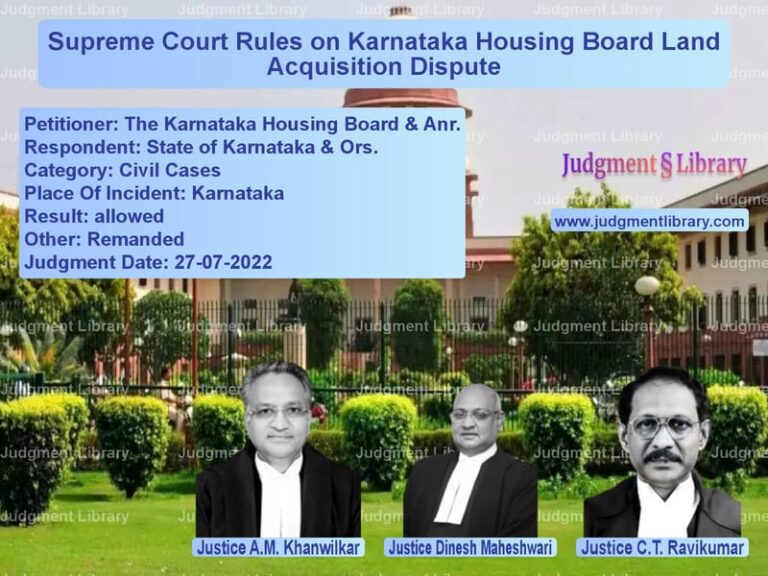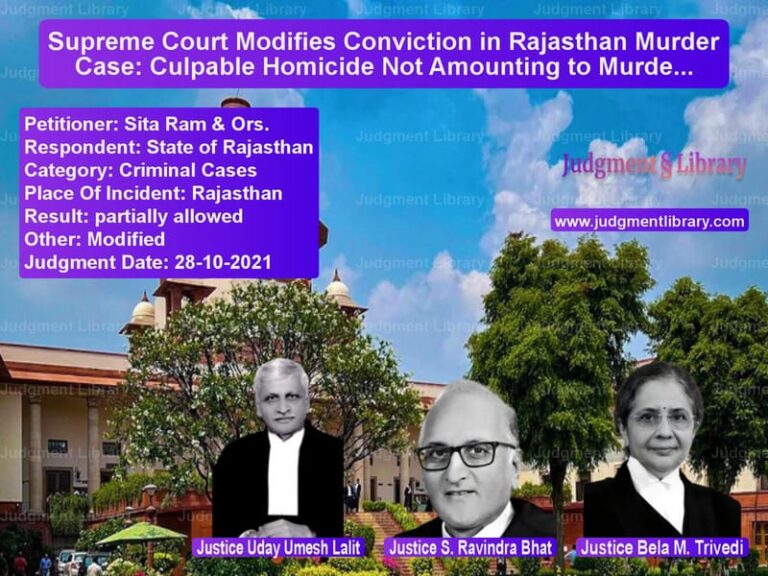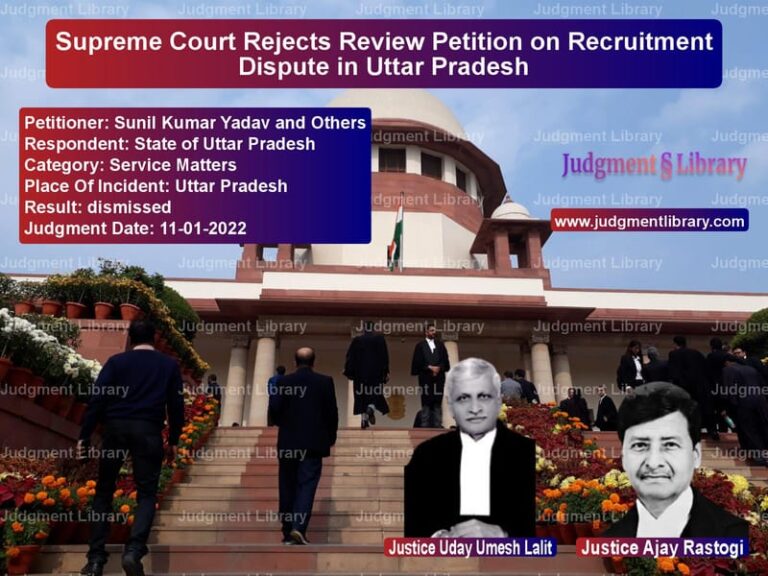Supreme Court Directs IIT Dhanbad to Grant Admission to SC Student After Portal Payment Failure
The case of Atul Kumar vs. The Chairman (Joint Seat Allocation Authority) & Others involved a legal dispute concerning the admission of a Scheduled Caste student to the Indian Institute of Technology (IIT) Dhanbad. The Supreme Court, in its judgment dated September 30, 2024, invoked its powers under Article 142 of the Constitution to grant admission to the petitioner, who had been denied entry due to a technical failure in the payment process.
This landmark decision underscores the judiciary’s commitment to equity in education, ensuring that technical difficulties do not obstruct meritorious candidates, especially from marginalized backgrounds, from accessing higher education.
Background of the Case
The petitioner, Atul Kumar, is a meritorious student belonging to the Scheduled Caste (SC) category. He appeared for the JEE (Advanced) 2024 Examination and secured a rank of 1455 in his category. Based on his performance, he was allotted a seat in the Electrical Engineering program at IIT Dhanbad.
The petitioner’s family background was critical in this case:
- His father is a daily wager.
- The family’s income is below the poverty line.
- He completed his higher secondary education in Khatauli, District Muzaffarnagar, Uttar Pradesh.
Since this was his second attempt, it was also his last chance to secure admission, as JEE (Advanced) allows only two attempts.
Key Facts Leading to Legal Proceedings
The controversy arose when the petitioner attempted to complete the online reporting and payment process:
- The deadline for online reporting, including payment of fees and document uploading, was 5 PM on June 24, 2024.
- The petitioner’s parents arranged the funds, and the fee amount was deposited in his brother’s bank account at 4:45 PM on the deadline day.
- At 4:45 PM, the petitioner logged into the Joint Seat Allocation Authority (JoSAA) portal to complete his admission formalities.
- Despite timely access, the portal closed at 5 PM, and his payment was not processed.
Subsequently, the petitioner made several attempts to rectify the situation:
- He immediately emailed the JoSAA authorities requesting redressal.
- On June 26, 2024, he received a response from the IIT Bombay Office for JEE (Advanced), directing him to IIT Madras.
- However, IIT Madras did not take any corrective action.
- He then approached the Jharkhand High Court Legal Aid Service Committee, which directed him to the Madras High Court Legal Services Committee.
- He filed a writ petition in the Madras High Court, but the Court advised him to approach the Supreme Court for relief.
Supreme Court’s Observations
The Supreme Court, comprising Chief Justice Dr. Dhananjaya Y Chandrachud, Justice J B Pardiwala, and Justice Manoj Misra, took cognizance of the case and made crucial observations.
1. No Dispute Over Seat Allotment
- The Court noted that there was no controversy over the petitioner’s seat allotment at IIT Dhanbad.
- His Scheduled Caste status was also undisputed.
- The petitioner had completed all required formalities, except for the payment issue caused by technical constraints.
2. Petitioner’s Diligence in Securing Admission
- The Court examined the petitioner’s log-in details to the JoSAA portal.
- Records showed that he accessed the portal six times between 3:12 PM and 4:57 PM on June 24, 2024.
- These attempts demonstrated that he was making earnest efforts to finalize the admission process.
3. Exercise of Article 142 for Substantial Justice
- The Court emphasized that Article 142 of the Constitution allows it to pass any order necessary to secure justice.
- It stated:
“A talented student like the petitioner, who belongs to a marginalized group of citizens and has done everything to secure admission, should not be left in the lurch.”
- The judgment underscored that technical glitches should not deprive deserving students of their right to education.
Final Judgment
The Supreme Court ruled:
- The petition was allowed, and IIT Dhanbad was directed to grant admission to the petitioner.
- A supernumerary seat (an additional seat beyond the regular quota) would be created for the petitioner if necessary.
- The petitioner would be entitled to all benefits of admission, including hostel accommodation and other facilities.
- He would be allowed to pay the admission fee in person at the time of enrollment.
- The Director of IIT Dhanbad was requested to help the petitioner catch up with coursework missed due to the delay.
Implications of the Judgment
This ruling has significant legal and social implications:
- Judicial Intervention in Education: The Supreme Court affirmed that it can step in to rectify administrative lapses affecting students.
- Equity in Higher Education: Ensures that students from marginalized backgrounds are not denied opportunities due to procedural technicalities.
- Technical Failures and Justice: Recognizes that digital payment failures should not result in irrevocable loss of admission.
The Supreme Court’s decision ensures that no meritorious student is deprived of higher education due to technical hurdles, reinforcing fairness in the admission process.
Petitioner Name: Atul Kumar.Respondent Name: The Chairman (Joint Seat Allocation Authority) & Others.Judgment By: Justice Dr. Dhananjaya Y Chandrachud, Justice J B Pardiwala, Justice Manoj Misra.Place Of Incident: IIT Dhanbad, Jharkhand.Judgment Date: 30-09-2024.
Don’t miss out on the full details! Download the complete judgment in PDF format below and gain valuable insights instantly!
Download Judgment: atul-kumar-vs-the-chairman-(joint-supreme-court-of-india-judgment-dated-30-09-2024.pdf
Directly Download Judgment: Directly download this Judgment
See all petitions in Fundamental Rights
See all petitions in Public Interest Litigation
See all petitions in Education Related Cases
See all petitions in Judgment by Dhananjaya Y Chandrachud
See all petitions in Judgment by J.B. Pardiwala
See all petitions in Judgment by Manoj Misra
See all petitions in allowed
See all petitions in Ordered Admission
See all petitions in supreme court of India judgments September 2024
See all petitions in 2024 judgments
See all posts in Constitutional Cases Category
See all allowed petitions in Constitutional Cases Category
See all Dismissed petitions in Constitutional Cases Category
See all partially allowed petitions in Constitutional Cases Category

